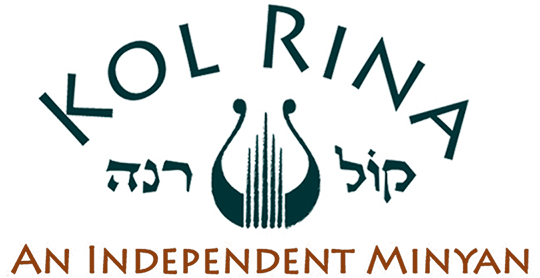Today we are commanded to hear the sound of the shofar. This commandment first appears in Leviticus 23:24-25. It says: “In the seventh month, on the first of the month, it shall be a Sabbath for you, a remembrance of the shofar blast; a holy occasion.” In the next verse the scripture continues: “But on the tenth of this seventh month, it is a day of atonement, it shall be a holy occasion for you; you shall afflict yourselves.”
The immediate proximity of these verses suggests that the two Holy Days, Rosh Hashanah and Yom Kippur, are linked through a single idea. The blow of the shofar, representing this idea, is the thread connecting the beginning and the end of this period and makes it one whole. This ten-day period starting with Rosh Hashanah and ending with Yom Kippur is referred to as Yamim Nora’im – Days of awe. The period starts with the blow of the shofar on Rosh Hashanah and ends with the blow of the shofar at the end of Ne’eelah as we usher Yom Kippur out.
What is this single idea, and what is the significance of the shofar?
 The central theme of Yamim Nora’im is the idea of repentance. We live our lives interacting with people, making choices, saying words and making decisions. We sometimes make poor choices offending people and God. Yamim Nora’im is when we take “time out” to reflect on how we conduct our lives and have the opportunity regret, and repent, and correct the wrongs we committed against God and our fellow human beings. The shofar blast is what our ancestors heard as Moses delivered the commandments at Sinai. The scripture tells us that the event was accompanied with “a very powerful blast of a shofar” and that “the sound of the shofar grew increasingly stronger.” Moses spoke and God answered him with a voice; a sound, rather, as Rashi interprets the text (“Be’kol” = a sound that has the quality of a voice). So as Moses was reading the commandments God was confirming them “with a voice” – the sound of the shofar. The shofar is the most powerful means of communicating with God. The Leviticus text is using the phrase “a remembrance of the shofar blast.” The word is “Remembrance” not “Reminding.” It is not to remind God about God’s revelation to Moses. Rather, it is for us to remember the defining event in our history and the commitment we made as a nation at that time: “So Moses came and told the people all the words of the Lord and all the ordinances, and all the people answered in unison and said, “All the words that the Lord has spoken we will do.”” (Exodus 25:3)
The central theme of Yamim Nora’im is the idea of repentance. We live our lives interacting with people, making choices, saying words and making decisions. We sometimes make poor choices offending people and God. Yamim Nora’im is when we take “time out” to reflect on how we conduct our lives and have the opportunity regret, and repent, and correct the wrongs we committed against God and our fellow human beings. The shofar blast is what our ancestors heard as Moses delivered the commandments at Sinai. The scripture tells us that the event was accompanied with “a very powerful blast of a shofar” and that “the sound of the shofar grew increasingly stronger.” Moses spoke and God answered him with a voice; a sound, rather, as Rashi interprets the text (“Be’kol” = a sound that has the quality of a voice). So as Moses was reading the commandments God was confirming them “with a voice” – the sound of the shofar. The shofar is the most powerful means of communicating with God. The Leviticus text is using the phrase “a remembrance of the shofar blast.” The word is “Remembrance” not “Reminding.” It is not to remind God about God’s revelation to Moses. Rather, it is for us to remember the defining event in our history and the commitment we made as a nation at that time: “So Moses came and told the people all the words of the Lord and all the ordinances, and all the people answered in unison and said, “All the words that the Lord has spoken we will do.”” (Exodus 25:3)
Our sages added a symbolic meaning to the mitzvah of blowing the shofar. The shofar is a ram’s horn, Thus, the shofar blasts remind God of the ram that Abraham sacrificed in Isaac’s stead. This, we hope, will remind God of Abraham’s faith and his complete obedience as reflected in the Akedah story. Perhaps this memory will give us credit in God’s eyes that we as Abraham’s descendents too are capable for complete and full repentance. Perhaps it will remind God of His own regrets of even having the idea of asking for sacrifice of Isaac?
It is the tradition in some synagogues to blow the shofar every morning during the month of Elul up until the day before Rosh Hashanah. This is intended to remind the congregation of the coming of the Day of Judgment and urge them to prepare themselves. The Hassidim have an additional explanation for this custom: It is to confuse Satan who comes before God during the “Ten days of Awe” to play the Accuser’s role. Blowing the shofar during the month of Elul will, they hope, confuse Satan and he would lose track of the counting of the days. Stopping the blowing the day before Rosh Hashanah will make him to think that Yamim Nora’im are over and so we will have God’s full attention on Yom Kippur without Satan’s interference.
Today and tomorrow we will hear 100 blasts of the shofar. It is a mitzvah to hear at least 30 of these blasts. So if you miss hearing some of them today you have another chance tomorrow to fulfill the mitzvah.
Ketivah veHatima Tova!

